
Code: 06623371
Noniterative Coordination in Multilevel Systems
by Krassimira Stoilova
Multilevel decision theory arises to resolve the contradiction between increasing requirements towards the process of design, synthesis, control and management of complex systems and the limitation of the power of technical, contr ... more
- Language:
 English
English - Binding: Paperback
- Number of pages: 270
Publisher: Springer, 2012
- More about this

121.11 €

Low in stock at our supplier
Shipping in 13 - 16 days
Potřebujete více kusů?Máte-li zájem o více kusů, prověřte, prosím, nejprve dostupnost titulu na naši zákaznické podpoře.
Add to wishlist
You might also like
-

Die schönsten Disney Themen. Puzzle 1000 Teile
17.86 € -4 % -

role of power exchanges
87.50 € -

Nutritional and Physiological Functions of Amino Acids in Pigs
162.80 € -2 % -

20 vek glazami pisatelej realistov i modernistov
52.07 € -9 % -

A Multimodality Image Registration System In Radiological Science
79.02 € -4 % -

Wannabe
23.21 € -

L'archipel en feu
15.03 € -2 %
Give this book as a present today
- Order book and choose Gift Order.
- We will send you book gift voucher at once. You can give it out to anyone.
- Book will be send to donee, nothing more to care about.
More about Noniterative Coordination in Multilevel Systems
You get 304 loyalty points
 Book synopsis
Book synopsis
Multilevel decision theory arises to resolve the contradiction between increasing requirements towards the process of design, synthesis, control and management of complex systems and the limitation of the power of technical, control, computer and other executive devices, which have to perform actions and to satisfy requirements in real time. This theory rises suggestions how to replace the centralised management of the system by hierarchical co-ordination of sub-processes. All sub-processes have lower dimensions, which support easier management and decision making. But the sub-processes are interconnected and they influence each other. Multilevel systems theory supports two main methodological tools: decomposition and co-ordination. Both have been developed, and implemented in practical applications concerning design, control and management of complex systems. In general, it is always beneficial to find the best or optimal solution in processes of system design, control and management. The real tendency towards the best (optimal) decision requires to present all activities in the form of a definition and then the solution of an appropriate optimization problem. Every optimization process needs the mathematical definition and solution of a well stated optimization problem. These problems belong to two classes: static optimization and dynamic optimization. Static optimization problems are solved applying methods of mathematical programming: conditional and unconditional optimization. Dynamic optimization problems are solved by methods of variation calculus: Euler Lagrange method; maximum principle; dynamical programming.
 Book details
Book details
Book category Books in English Reference, information & interdisciplinary subjects Research & information: general Information theory
121.11 €
- Full title: Noniterative Coordination in Multilevel Systems
- Author: Krassimira Stoilova
- Language:
 English
English - Binding: Paperback
- Number of pages: 270
- EAN: 9789401064958
- ISBN: 9789401064958
- ID: 06623371
- Publisher: Springer
- Weight: 464 g
- Dimensions: 240 × 160 × 16 mm
- Date of publishing: 16. January 2012
Trending among others
-

The Black Swan
11.19 € -29 % -

Human Use Of Human Beings
12.71 € -21 % -

Linked
20.78 € -

Cybernetics, Second Edition
30.17 € -1 % -

Sync
11.29 € -28 % -

Deep Simplicity
12.61 € -19 % -
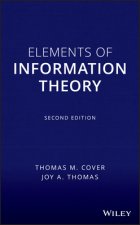
Elements of Information Theory
124.55 € -2 % -
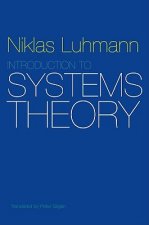
Introduction to Systems Theory
24.62 € -8 % -

Ethics of Information
49.25 € -

Computer and the Brain
16.44 € -19 % -

Nonlinear Dynamics and Chaos
89.42 € -

Introducing Chaos
10.08 € -21 % -

System Identification
137.16 € -

Information Theory
29.46 € -

God & Golem, Inc.
49.35 € -

Problems of Life
16.64 € -

Ant Colony Optimization
9.58 € -17 % -

Recursive Universe
14.02 € -22 % -
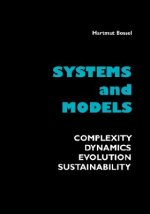
Systems and Models. Complexity, Dynamics, Evolution, Sustainability
23.41 € -9 % -

System Identification 2e - A Frequency Domain Approach
166.74 € -5 % -

Repair
31.18 € -19 % -

Social Life of Information
30.37 € -4 % -
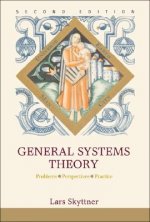
General Systems Theory: Problems, Perspectives, Practice
139.28 € -

Bioinformatics: An Introduction
121.11 € -

Modeling Business Processes
60.25 € -17 % -

System Identification, Environmental Modelling, and Control System Design
186.32 € -

Fault Tolerant Control Design for Hybrid Systems
121.11 € -

Riccati Equation
132.02 € -
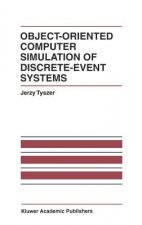
Object-Oriented Computer Simulation of Discrete-Event Systems
273.23 € -

Computational Beauty of Nature
80.03 € -

Cybernetics or Control and Communication in the Animal and the Machine
55.91 € -

Object-Oriented Computer Simulation of Discrete-Event Systems
273.23 € -
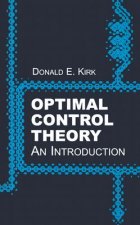
Optimal Control Theory
28.96 € -18 % -

Student's Guide to Coding and Information Theory
38.55 € -

Introduction to Complex Systems
132.02 € -

Design Structure Matrix Methods and Applications
62.37 € -7 % -

On Dialogue
156.44 € -
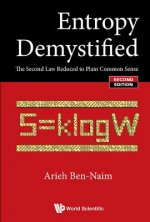
Entropy Demystified: The Second Law Reduced To Plain Common Sense
33.70 € -

Fundamentals of Diffusion-Based Molecular Communication in Nanonetworks
101.23 € -

Selected Works of Joseph E. Stiglitz
268.99 € -

Mathematical Systems Theory
61.46 € -
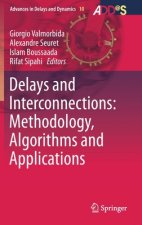
Delays and Interconnections: Methodology, Algorithms and Applications
121.11 € -

Brownian Motion, Martingales, and Stochastic Calculus
58.33 € -3 % -

Introduction to Cybernetics
16.64 € -

Introduction to Evolutionary Algorithms
218.92 € -

Plan Prediction
121.11 € -

Randomness Through Computation: Some Answers, More Questions
176.33 € -

Cybernetics and Systems Theory in Management
209.54 € -

Metaphysics of Virtual Reality
49.05 €
Collection points Bratislava a 2642 dalších
Copyright ©2008-24 najlacnejsie-knihy.sk All rights reservedPrivacyCookies


 15549 collection points
15549 collection points Delivery 2.99 €
Delivery 2.99 € 02/210 210 99 (8-15.30h)
02/210 210 99 (8-15.30h)